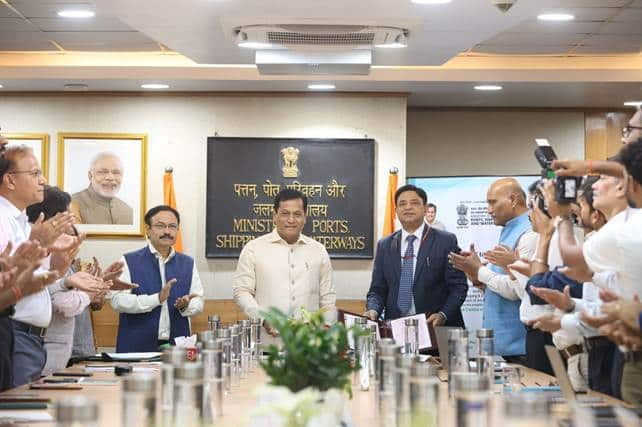India Defends Agriculture & Dairy Sectors: 'Red Lines' in US Trade Talks
New Delhi – India's Finance Minister, Nirmala Sitharaman, has firmly stated that the nation's agricultural and dairy sectors are non-negotiable in ongoing trade discussions with the United States. In an exclusive interview with the Financial Express, Sitharaman emphasized that these industries represent critical interests for India and will not be compromised during negotiations.
The statement comes amidst increasing pressure from the US to gain greater access to India's agricultural markets, particularly for dairy products. US producers have long argued that India's subsidies and regulations create an uneven playing field, hindering their ability to compete effectively. However, India maintains that its policies are essential to protecting the livelihoods of millions of farmers and ensuring food security for its vast population.
“Agriculture and dairy are big red lines for us,” Sitharaman asserted, signaling a strong resolve to protect these vital sectors. This declaration underlines the Indian government's commitment to safeguarding the interests of its domestic producers and maintaining control over its food policies.
Why Agriculture & Dairy Matter to India
The agricultural sector is a cornerstone of the Indian economy, employing over 50% of the workforce and contributing significantly to the nation's GDP. Millions of small and marginal farmers rely on agriculture for their sustenance, and any disruption to this sector could have severe social and economic consequences. The dairy industry, too, plays a crucial role, providing livelihoods to millions of rural households and contributing to India's nutritional security.
The US Perspective and Potential Trade Implications
The US has been actively seeking to address trade barriers in India, including those related to agriculture. They argue that reducing these barriers would not only benefit US producers but also lead to lower prices and greater choice for Indian consumers. However, India’s stance highlights the complex challenges in reaching a comprehensive trade agreement. The potential impact of a trade deal on India's agricultural sector remains a significant point of contention.
Future Negotiations & Potential Outcomes
The upcoming trade negotiations between India and the US are expected to be closely watched by both countries and the global community. While a comprehensive trade agreement remains a possibility, the “red line” designation for agriculture and dairy suggests that compromises may be difficult to achieve. Analysts predict that negotiations will likely focus on other areas of trade, such as manufacturing and services, while leaving agriculture and dairy largely untouched.
Sitharaman's strong statement reinforces India's position and sets the stage for potentially challenging discussions ahead. The outcome of these negotiations will have far-reaching implications for both economies and the broader global trade landscape. It’s clear that India is prioritizing the protection of its farmers and the stability of its food system, even if it means delaying or limiting the scope of a trade deal with the United States.






